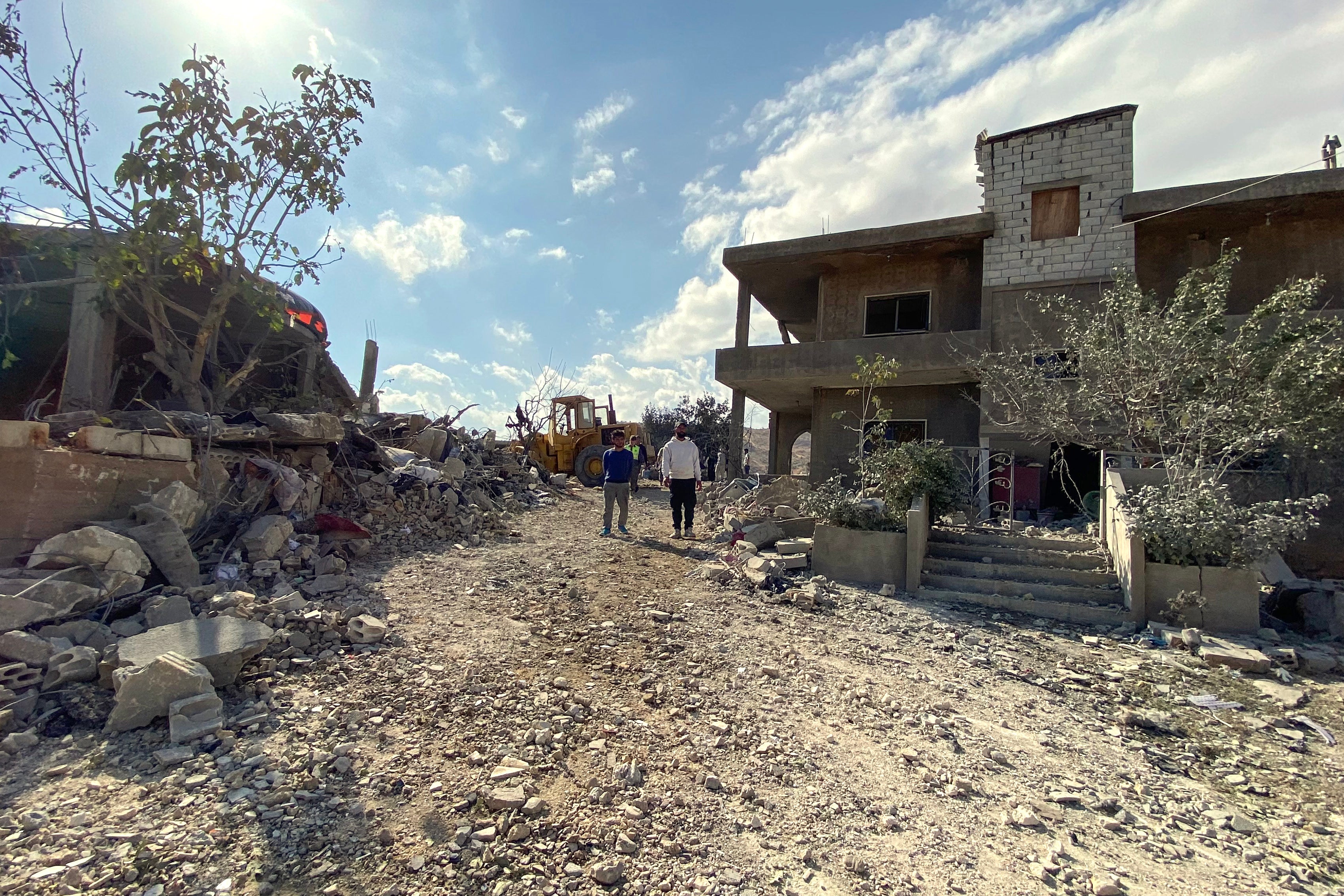Israel bombed the eastern Lebanese city of Baalbek on Wednesday and killed 19 people, the country’s health ministry said.
At least 11 people, including three women, were slain in an attack on Salibi Farm in the Baalbek area and three men and five women were killed in Bednayel.
The attacks came hours after the Israeli military ordered people to leave the city and surrounding areas in the Bekaa valley.
The Israelis issued a similar evacuation order for the city for the second day running on Thursday.
Baalbek, a Unesco World Heritage, is home to some of the oldest and grandest Roman monuments such as the Temple of Bacchus and the Temple of Jupiter.
The Israeli military said on Wednesday it struck Hezbollah command-and-control centres and infrastructure in Baalbek and Nabatiyeh in southern Lebanon.

The latest attacks came as Hezbollah’s new secretary general, Naim Qassem, said the group would keep fighting Israel until it offered acceptable ceasefire terms.
“If the Israelis decide to stop the aggression, we say that we accept but according to the conditions that we see as suitable,” he declared in a recorded televised address aired on Wednesday, his first speech since he was made leader.
“We will not beg for a ceasefire.”
The evacuation order, issued for the entire city of Baalbek, caused panic among the residents that include families displaced by Israeli attacks in other parts of the country.
“Minutes after the order to leave came, the streets were filled with people grabbing their things, locking their homes and closing their shops,” Roula Zeaiter from the Lebanese Women Democratic Gathering told the charity ActionAid.
“We’re scrambling like scared mice, moving from place to place. Lebanon is becoming like Gaza, with Israeli forces using the same tactics,” she was quoted as saying by the BBC.
Mayor Mustafa al-Shell told the BBCmore than 20 strikes were reported on Wednesday afternoon in the area, with five inside the city of Baalbek. He added that an estimated 50,000 fled within the two hours of the warnings being issued, but several stayed back “for various reasons”.
“It’s not clear what the Israelis have targeted,” he said, adding they hit residential buildings within the city and its outskirts. “But I can tell you that there are no ammunition dumps or weapons caches in Baalbek.”
The Unesco site was not struck, Mr al-Shell said, but Lebanese authorities were pleading “for international bodies to stand fast in defence of Baalbek’s Roman ruins”.
Antoine Habchi, a lawmaker representing majority Christian Deir al-Ahmar northwest of Baalbek, said more than 10,000 people were already sheltering in homes, schools and churches.
“We welcome everyone, of course, but we need immediate government help so that these people don’t stay out in the cold,” he told Reuters.
In a post on X, Unesco called for protection of the heritage sites. “In the #MiddleEast, more than seventy exceptional sites are recognized and protected as World Heritage by UNESCO. These sites are now under threat, particularly in Lebanon, Palestine, Israel and Yemen,” it said.
“Unesco recalls to all parties their obligation to respect and protect the integrity of these sites. They are the heritage of all humanity and should never be targeted.”
In the #MiddleEast, more than seventy exceptional sites are recognized and protected as #WorldHeritage by @UNESCO. These sites are now under threat, particularly in #Lebanon, #Palestine, #Israel and #Yemen.
— UNESCO 🏛️ #Education #Sciences #Culture 🇺🇳 (@UNESCO) October 30, 2024
UNESCO recalls to all parties their obligation to respect and protect… pic.twitter.com/ao1LQS2geH
Israel’s attacks have killed more than 2,790 people and wounded 12,700 in Lebanon since last October, when Hezbollah began firing rockets across the border following Israel’s assault on Gaza, according to the health ministry.
The conflict escalated sharply last month after Israel assassinated Hezbollah leader Hassan Nasrallah, and its military invaded southern Lebanon at the beginning of October.
The conflict has displaced nearly 1.2 million in Lebanon, according to government estimates.







